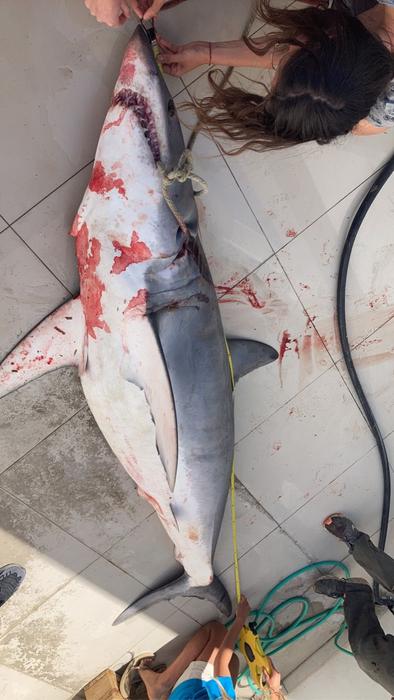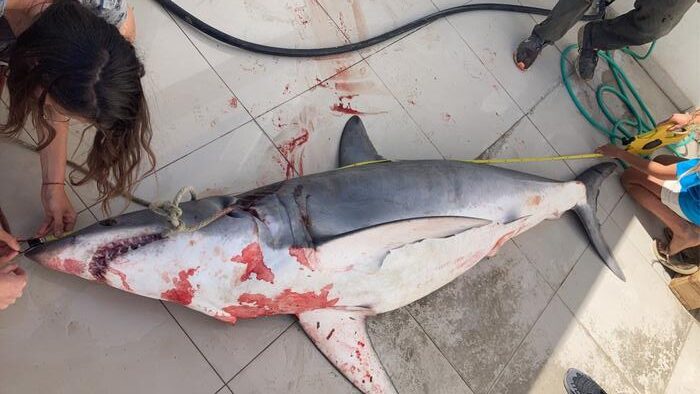Sharks and rays from threatened species are being caught off northern Cyprus, according to a new study by scientists who are working with local authorities and fishers to protect the animals.

Credit: University of Exeter/SPOT
Sharks and rays from threatened species are being caught off northern Cyprus, according to a new study by scientists who are working with local authorities and fishers to protect the animals.
Researchers from the University of Exeter and the Society for the Protection of Turtles (SPOT) analysed the numbers and species of elasmobranchs (sharks, rays, skates and sawfish) caught in a small-scale fishery from 2018-22.
Of the 36 species recorded, 22 are listed on the IUCN Red List as globally threatened (critically endangered, endangered or vulnerable).
The researchers say fishers and local authorities are keen to protect threatened species, and simple changes could have a major impact.
As a result of the study, local rules were changed in May 2023 to ban trading of 15 elasmobranch species.
“Our study demonstrates the importance of the coastal waters of Cyprus for multiple life stages of a broad range of elasmobranch species,” said Martha O’Keefe, who co-led the study as part of a masters in Marine Vertebrate Ecology and Conservation at the University of Exeter.
“We found many species not previously recorded in this area, and the 36 species we found represent 41% of all elasmobranch species known to live in the Mediterranean.
“Our study focussed on a small-scale fishery, mostly wooden boats of less than 12 metres, which use a variety of nets and longlines.
“While most elasmobranchs caught are currently retained for bait, food or trade, fishers are keen make the fishery sustainable.”
Dr Damla Beton, from SPOT, added: “There’s quite a lot that can be done in this fishery.
“A small amount of awareness goes a long way.
“Fishers we worked with are very willing to help, and they’re keen to improve the situation for threatened species.”
Simple measures could include limiting net lengths, avoiding fishing in certain areas at certain times of year, and adding lights to nets to deter some species.
The study also greatly contributed to a trading ban covering 15 species listed under the Barcelona Convention.
“That legislation is a step forward but there are challenges about how it is enforced,” said Professor Annette Broderick, from the Centre for Ecology and Conservation at Exeter’s Penryn Campus in Cornwall.
“Based on our findings, this area should be considered a regional conservation priority for elasmobranchs, and, through our local partner SPOT MarineLife, we are working with fishers and local authorities to improve conservation and ensure fishing is conducted sustainably.”
The study assessed a total of 1,702 sets (nets or lines), with 730 recorded by onboard observers and 972 by self-reporting fishers. A total of 1,205 individual elasmobranchs were recorded.
The research was funded by the MAVA Foundation.
The paper, published in the journal Frontiers in Marine Science, is entitled: “Diversity and distribution of elasmobranchs in the coastal waters of Cyprus: using bycatch data to inform management and conservation.”
Journal
Frontiers in Marine Science
DOI
10.3389/fmars.2023.1181437
Method of Research
Observational study
Subject of Research
Animals
Article Title
Diversity and distribution of elasmobranchs in the coastal waters of Cyprus: using bycatch data to inform management and conservation
Article Publication Date
31-Oct-2023





